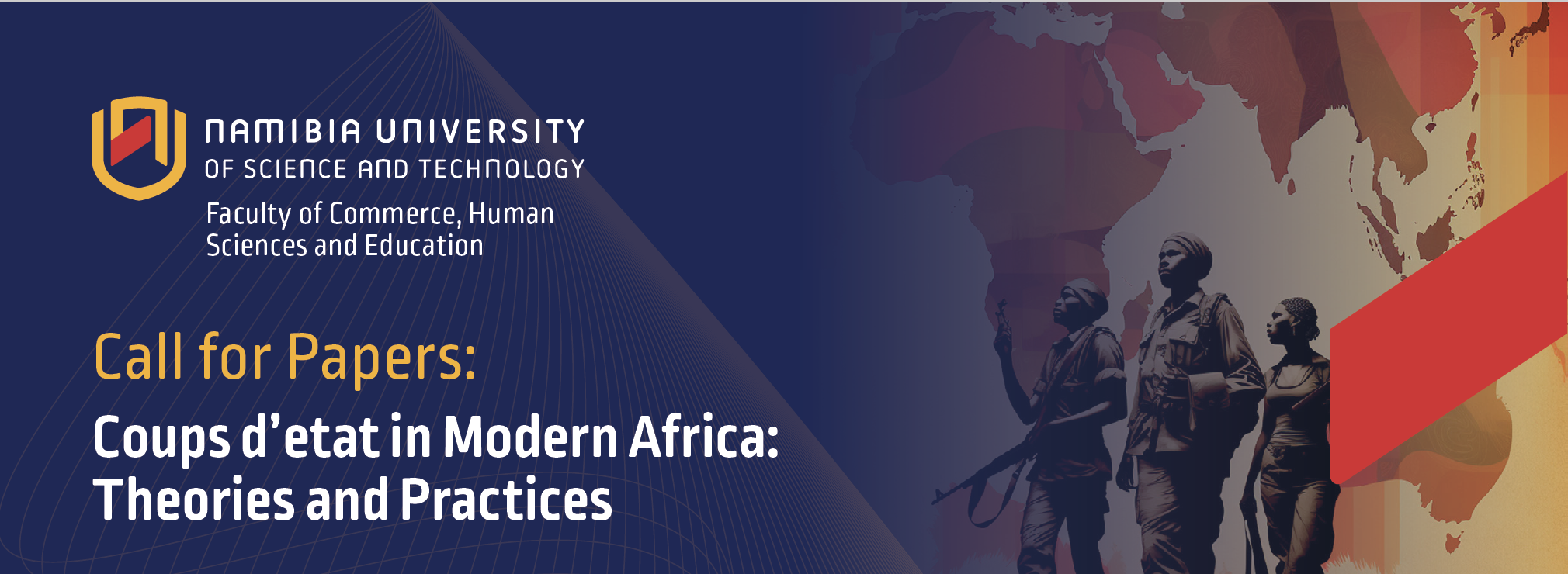
Since the dawn of independence in Africa in the early 1960s the African states have witnessed coups d’etat that are a mix of violent, and non-violent in characteristics. From early 1950s coups d’etat were linked and aligned to interests of the West/Northern’s scramble for African resources (sponsored coups d’etat). In contrast, the late approaches to coups d’etat, appears to contain nuances and links between coups d’état and colonial legacy in Africa – implementation of coups d’etat as a method to unplug the so-called Western puppets, dictatorship, and Western plunder of the African resources. This phenomenon is a call for concern and a direct indictment on various thematic areas, including but not limited to:
- Historicising coups d’état in Africa,
- Coup d’état, countercoup and peacebuilding
- Coup d’etat and political stability,
- Coup d’etat, democracy and governance,
- Coup d’etat and rule of law,
- Coup d’etat and constitutionalism,
- Coup d’ etat, trade, finance, and investment,
- Coup d’état and political economy
- Coup d’etat, peace and security,
- Coup d’etat and human rights,
- Coup d’etat and electoral legitimacy,
- Coup d’etat, terrorism, treason, and sedition,
- Coup d’etat, revolution, radicalism, and civil unrest,
- Coup d’etat methods and practices,
- Causes and effects of coup d’etat
- Responses to coup d’état by state and non-state actors
- Coup d’etat and the Role of the International Community
- Coup d’etat and Military Power Struggles
- Coup d’etat and foreign powers/influence
- Coup d’etat and media, information sharing, and communication in African
Prospective chapter contributors are advised to be free to submit results of empirical research or desktop-based studies, use titles of their own which are reflective of proposed themes, and which capture the essence of the Book. Interested scholars and practitioners can send abstracts not exceeding 300 words to: Prof Pilisano Masake at pmasake@nust.na; Dr Kennedy Mabuku at kennedymabuku@yahoo.com; Dr Torque Mude at tmude@unam.na before or on 30 January 2024.
Feedback on abstracts will be sent out on 20 March 2024. The accepted abstracts will have to be developed into full chapters of a minimum of 5000 words and should be submitted before or on 30 August 2024.
Writing guide:
Authors to use an APA referencing style
Font type: Times New Roman
Font size: 12
Line spacing: 1.5
NB: Authors should include a biographical statement of not exceeding 150 words. The abstracts and subsequent book chapters shall be subjected to rigorous peer review. The book is expected to be published in the first quarter of 2025.
The scientific committee members:
Prof Pilisano Masake – Associate Dean
Dr Kennedy Kaumba Mabuku – Inspector in the Namibian Police Force
Dr Torque Mude – senior lecturer
| Attachment | Size |
|---|---|
| FINAL CALL COUPS D ETAT.pdf (335.19 KB) | 335.19 KB |

